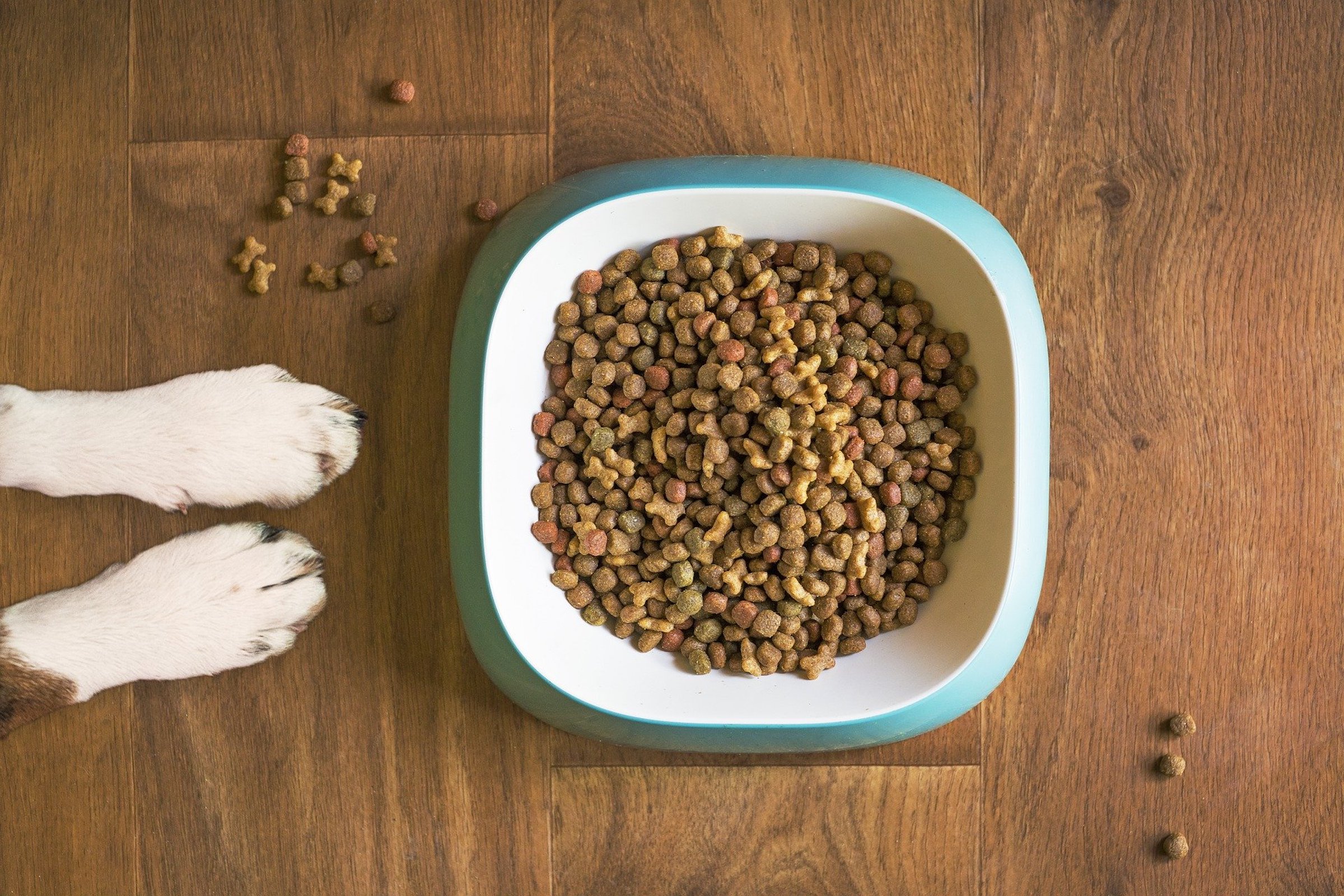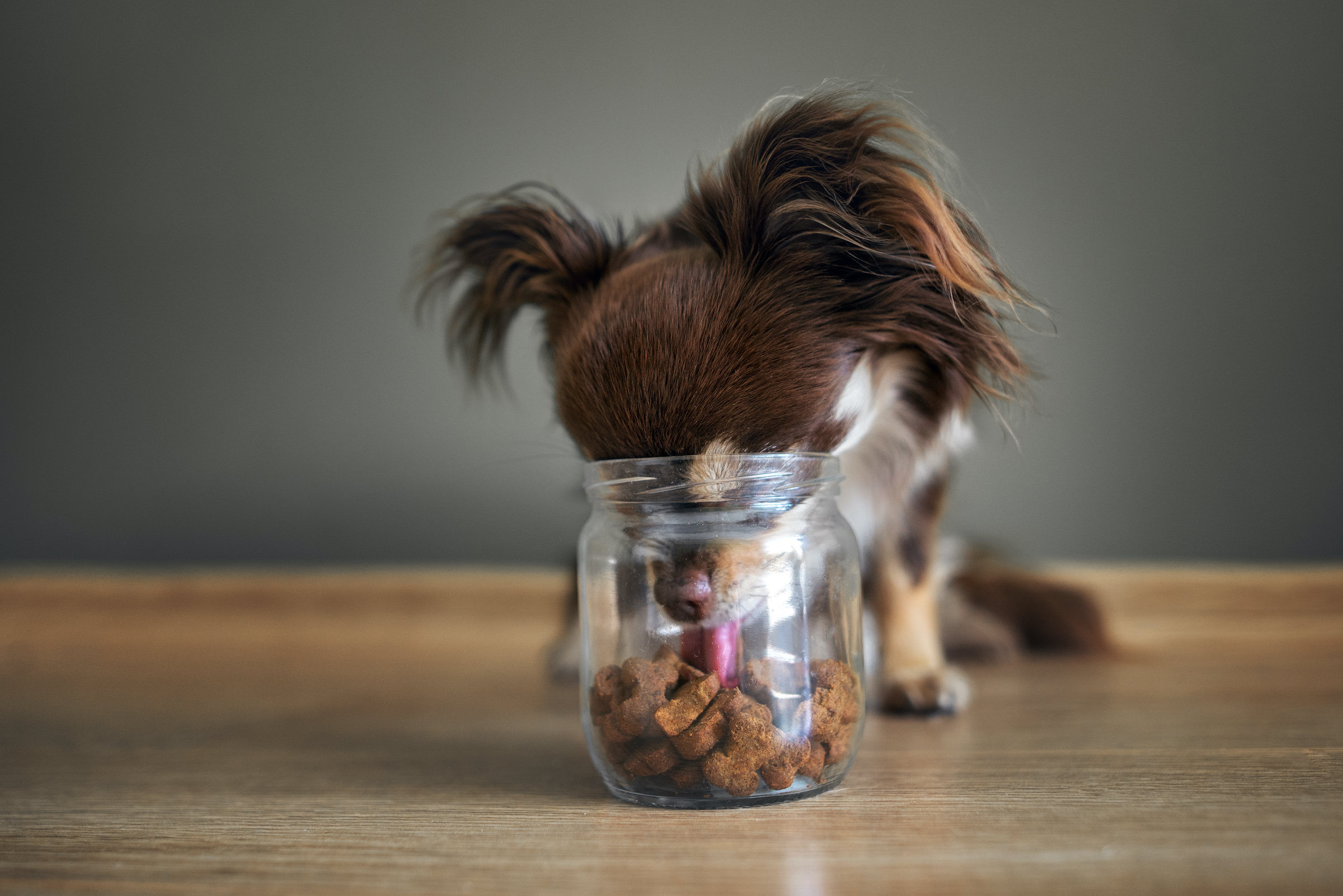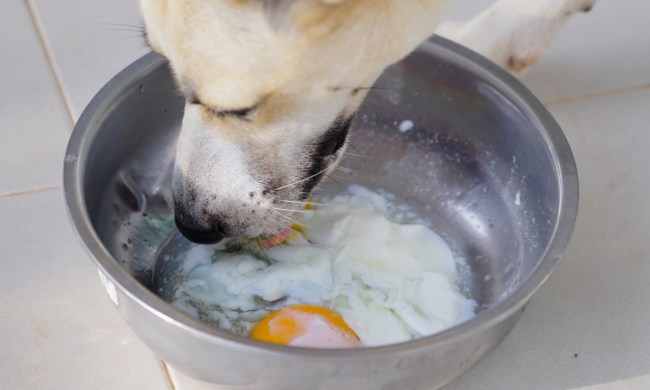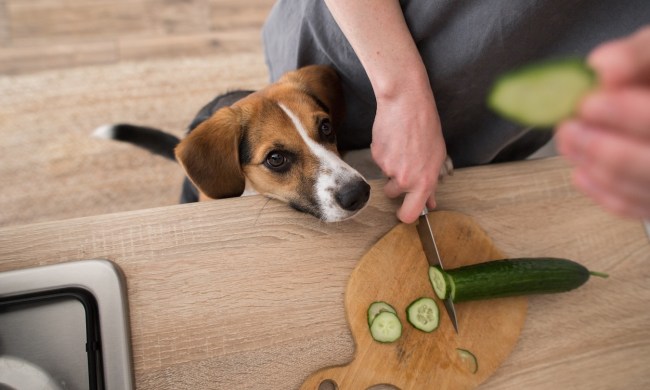Whether your fur baby snacks on store-brand kibble, a vet’s recommended brand, or something homemade with love, you’ll run into the conundrum of storage at one time or another. As easy as it would be to simply keep the bag of kibble in the pantry to scoop out of every day, it just isn’t possible (or sanitary). Just like people food, dog food needs to be kept in a particular environment to stay fresh and appetizing, but what can you do to make storing dog food easier?
Learning how to store dog food will save you time and money over the years, and you’re on the right track to figuring it all out for yourself. This one goes out to all the pet parents who’ve ever Googled “storing dog food tips.”

How to store dog food
Whether you have space to spare or are looking for every available nook and cranny, there’s something you can do. With as little as one kitchen item, you can extend the shelf life of nearly any dog food by double — or more! Want to know more?
Keep food fresh in a pinch with a bag clip
Odds are, there’s a clip of some kind hiding in your home — and if there isn’t, you can grab this adorable clip here. Once you get it, you can use it to keep a bag of kibble fresh for up to two weeks, but this is not an ideal, long-term storage solution.
As soon as a bag of dog food is opened, the expiration date on the bag becomes irrelevant. The date you see printed on the packaging is the expiration or best-by date of a totally unopened bag of food. As soon as the airtight seal is broken, kibble will last for only about a month in ideal conditions before losing much of its oil — which is where the nutrients are.
Buy an airtight container to keep kibble from going bad … but keep it in the bag
Many pup parents have heard about the benefits of storing dog food in airtight containers: It keeps food fresh for longer, it keeps vermin, pests, and even your dog from getting into the bag, and it keeps that lovely dog food smell to a minimum. What many pet owners don’t know is that using an airtight container on its own may not be enough.
Over time, kibble will dry out and lose its nutritious oil. Even in glass, plastic, or metal airtight containers, oil gathers on the sides and bottom of the container as it sits, especially if it’s exposed to heat or too much oxygen.
The ideal solution is never to take the dog food out of its original bag. Instead, put the entire bag inside an airtight container for double layers of protection plus the best oil control you can find.
Store pet food in cool, dry places
The ideal storage environment for both dry and canned wet food is a cool and dry location, such as a pantry. Canine nutrition experts at Pedigree recognize 85 degrees Fahrenheit as the maximum safe storage temperature, while they also recommend keeping any of your pet’s food off of the ground to prevent mold and pest infestation. Keep in mind that, once opened, wet dog food has a seriously short shelf life, so it must be refrigerated within four hours.
Seal and store wet food leftovers in the fridge
Although kibble can be kept on the shelf (in its airtight container, of course) for a month after opening, any opened canned food should be transferred to the fridge as soon as possible. Using a reusable pet food lid can help keep any leftovers fresh while in the fridge, but cling wrap or a ziplock bag will do the trick as well. Remember to keep wet food for only three days — then throw it out if it’s not eaten!

How to freeze dog food
There’s much debate over storing leftover kibble in the freezer, but it’s generally not recommended since moisture from the freezer can encourage mold growth. While less common, some brands of raw and specialized foods are more safely stored in the freezer. But how do you know if your food is one of them?
Always follow packaging directions
Because brands can have different storage and preparation instructions, you should never assume all raw foods will be the same. The package will be your best friend in this case, though your vet also may have recommendations when it comes to preparing (and planning) your pet’s raw diet.
Swap freezer bags for airtight containers
Just as airtight containers keep kibble fresh, they’ll do the same for frozen foods. Another plus is the protection from freezer burn, which can taste gross to your pup and make cooking hard for you. Don’t forget to keep your containers all labeled so you won’t mix up expiration dates! Plus, it makes organization and cleaning that much easier later on.
With these savvy tips, you can keep your dog as healthy as possible while keeping your pantry organized and clean. From containers to clips and even bags, gadgets abound to help make the process as easy as possible, too. It’s all about finding what works best for you and your fur baby.



